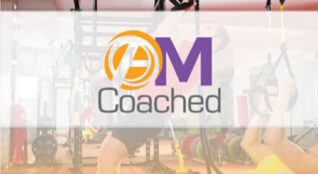-
 By Michelle Dalton, Athletic Mentors Coach and Triathlete You did it!! Whether it was your first or 50th race, the sense of accomplishment, of having achieved something difficult, is hard to replicate. The training, the sacrifices, the doubts, the injuries, the pain are all forgotten once you cross the finish
By Michelle Dalton, Athletic Mentors Coach and Triathlete You did it!! Whether it was your first or 50th race, the sense of accomplishment, of having achieved something difficult, is hard to replicate. The training, the sacrifices, the doubts, the injuries, the pain are all forgotten once you cross the finish -
 Training time is valuable and athletes want to get the most out of their workouts. This can often lead to skipped warm ups, which may be more detrimental than trading the additional 10 minutes of workout time for properly prepping the body for activity. Just 10 minutes before every workout
Training time is valuable and athletes want to get the most out of their workouts. This can often lead to skipped warm ups, which may be more detrimental than trading the additional 10 minutes of workout time for properly prepping the body for activity. Just 10 minutes before every workout -
 Athletes enjoy year-to-year improvement, and constantly seek ways to achieve gains through changes to things like their training, nutrition, or tactics. But the closer an athlete gets to his or her full potential, the more challenging it becomes to continue the trajectory of improvement. Knowing that you “don’t know what
Athletes enjoy year-to-year improvement, and constantly seek ways to achieve gains through changes to things like their training, nutrition, or tactics. But the closer an athlete gets to his or her full potential, the more challenging it becomes to continue the trajectory of improvement. Knowing that you “don’t know what -
 Here is a great opportunity to step up your game and improve race results. If you are not using a training plan designed for your fitness level, age and ability, attend this half day clinic and leave with a training plan tailored to YOU. You’ll have an online account to
Here is a great opportunity to step up your game and improve race results. If you are not using a training plan designed for your fitness level, age and ability, attend this half day clinic and leave with a training plan tailored to YOU. You’ll have an online account to -
 With the lakes finally starting to thaw, we are weeks behind last season in getting out in that open water to prepare for our first triathlon. For most of us, this means more time staring at lines at the bottom of the pool. A good way to spice up your
With the lakes finally starting to thaw, we are weeks behind last season in getting out in that open water to prepare for our first triathlon. For most of us, this means more time staring at lines at the bottom of the pool. A good way to spice up your -
 We still have room in our “Build Your Own Training Plan” Class this saturday, February 23rd. In this class you’ll complete bike and run field tests and learn how to execute great workouts. Using the data collected from the tests, we’ll help you design your own 90 day training plan
We still have room in our “Build Your Own Training Plan” Class this saturday, February 23rd. In this class you’ll complete bike and run field tests and learn how to execute great workouts. Using the data collected from the tests, we’ll help you design your own 90 day training plan -
 In my last blog I spoke about 5 things that you need to get done ASAP, that is, very early in the beginning of your new season (i.e. the off season). These 5 things are very important for determining how to best go about training for the coming race season.
In my last blog I spoke about 5 things that you need to get done ASAP, that is, very early in the beginning of your new season (i.e. the off season). These 5 things are very important for determining how to best go about training for the coming race season. -
 Exposure to various environmental conditions (i.e. altitude, cold, and heat) has been shown to promote physiological adaptations. Specifically, since the 1990’s athletes have been utilizing the “live high, train low” philosophy to improve athletic performance by taking advantage of our body’s natural ability to adapt to altitude (primarily through the
Exposure to various environmental conditions (i.e. altitude, cold, and heat) has been shown to promote physiological adaptations. Specifically, since the 1990’s athletes have been utilizing the “live high, train low” philosophy to improve athletic performance by taking advantage of our body’s natural ability to adapt to altitude (primarily through the
 Athletic Mentors
Athletic Mentors